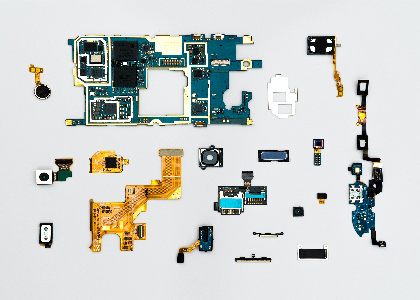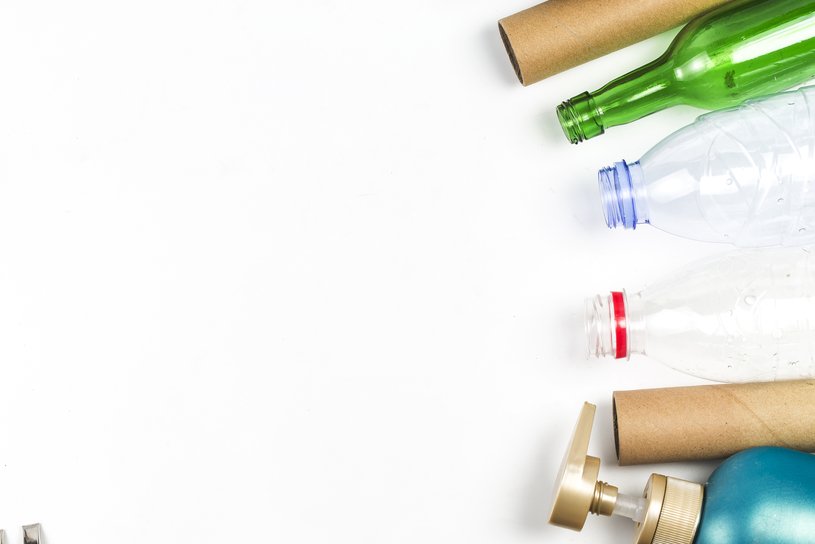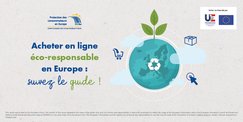Repair, Reuse, Recycle
Broken appliances, worn-out clothes... What to do with all these products you no longer need? Instead of sorting them out and throwing them away, here are some alternative solutions to give your purchases a second life.
- Product under guarantee? Repair, don't discard!
- Life beyond warranty
- Make use of your new right ro repair!
- Donate, exchange, repurpose
- Repurposing and upcycling
- Ban the destruction of unsold clothing to reduce waste
Product under guarantee ? Repair, don’t discard !
Give your items a second life by repairing or repurposing them. Instead of throwing out things we no longer need, let’s think of alternative ways to prolong their lives.
Repairing appliances means discarding less products, therefore less pollution and fewer new products. Under European law, all appliances have a 2-year legal guarantee that can be used for repairs or replacement if they break down. The legal guarantee applies regardless of whether you buy from a seller in France or another EU country.
Here are some good examples from Europe:
- In France as well as in Belgium, Bulgaria, Ireland, Italy, Lithuania, Luxembourg, Malta, the Netherlands, Norway and Romania, the guarantee is on hold while the product is under repair.
- If you opt for repairs, in Austria, Croatia, France, Greece and Iceland, you will get your guarantee extended.
- French buyers who shop on European websites aiming the French market will have their product guarantee extended by 6 months if they opt to repair a broken product. If the seller replaces the defective product instead of repairing it against your choice, you will benefit from a new 2-year warrantyon thereplaced product.
- A future European directive designed to facilitate the repair of products in the EU will extend the legal guarantee by one year if the product is repaired. This new obligation does not rule out the possibility to have even more favourable conditions in some member states.
If you have any doubts about the law applicable to your purchase, do not hesitate to contact your ECC.
Note: If the legal guarantee of conformity has expired, you may have a longer commercial warranty provided by the retailer or the manufacturer. You may benefit from at least one free repair under the product warranty terms.
Life beyond warranty
Following rules apply on EU manufacturer product guarantees and warranties have changed as follows:
- Manufacturer guarantee and availability of spare parts for refrigeration appliances is 7 years.
- Spare parts must be available for 10 years for washing machines, tumble dryers and dishwashers.
- Manufacturers must deliver the spare parts within 15 days.
- Product guarantee/warranty must detail possible breakages, how they will get repaired and what parts are replaceable as standard.
- Manufacturers must provide a list of spare parts available on the Internet.
For more information on measures to encourage repairs in European countries, check our article.
Note: If you are unable to repair your product or obtain spare parts, contact your nearest repair shop and think of the numerous co-repair workshops throughout Europe. You may just find the parts you need!
Good practices from Europe
- In Greece, Romania and Portugal you can benefit after-sales assistance/ service, including the supply of spare parts for the estimated average lifespan of the products.
- In Slovenia, the manufacturer must repair products and supply spare parts for at least 3 years after the expiry of the warranty period, at a cost.
- In Belgium, Luxembourg and the Netherlands, small repairs of bicycles, shoes, leather goods, clothing and household textiles are subject to a reduced VAT rate.

Make use of your new right to repair!
Europe wants to encourage repair of broken goods that are no longer under guarantee.
Several rules are set out to apply from 31 July 2026. You will find more information on how to repair your goods in Europe.
You will be able to ask for certain products, such as household appliances, to be repaired at a reasonable price and within a reasonable time, provided that they are ‘technically repairable’. This includes washing machines, hoovers, smartphones, etc. The list will be expanded over time to include new product categories.
You can borrow an appliance from the manufacturer during the repair.
In each country, there will be measures to encourage repair, such as repair vouchers, funding, information campaigns, etc.
The creation of a European online platform will make it possible to find local repair services, shops selling reconditioned products and participatory repair initiatives.
Manufacturers must make spare parts and tools available at a reasonable price. They must not use clauses or techniques that hinder repairs.
Examples: preventing independent repairers from using second-hand or 3D-printed spare parts, refusing to repair a product solely for economic reasons or because it has previously been repaired by a third party, etc.
Donate, Exchange, Repurpose
Are you accumulating bags and bags of old clothes? Is your TV broken beyond repair? Think about recycling them!
Here are some ideas of what to do with your old things!
- Drop them off at collection points, clothes banks and charity drives.
- Before donating an item of clothing, consider if it’s worth altering it or repurposing it. Many dressmakers or artists can give a second life (sewing, decoration, etc.) to a garment by turning it into another piece of clothing or decorative item.
- For electronic or household appliances, contact organisations that offer to recover, repair and resellthis type of second-hand goods.
- You can do the same with your clothes. Some brands and retailers now offer the chance to bring in your old clothes for recycling or reuse. In return, you'll be offered a voucher. But be careful not to overdo it. Some retailers only allow you to bring in clothes from their brand, and encourage you to bring in more with the sole aim of getting you to spend more, thanks to the vouchers. Here too, beware of the risk of greenwashing! To avoid this, ask the seller what they do with the clothes they collect. Many products remain stuck in warehouses, and it is sometimes only a tiny proportion that is resold and worn again.
- Your old furniture and other appliances can be re-sold in a second-hand sale depot or on consumer-to-consumer online marketplaces. Second-hand sale platforms are available in France, as in other European countries.
- Consider freecycling and/or swapping. There are exchange platforms where people can donate items for free or swap with others. There are many such groups online and on social media too.
Note: The European Union Waste Management Directive provides a clear framework for the expected life of a product which includes these stages: durable design, reuse, recycling, repurposing, and, only as a last resort, disposal.
Car parts sale and exchange sites
Some car parts websites, especially in Germany, offer discounted prices for trading used parts when you buy new ones (e.g., buy a new particle filter and send in your old, used filter).
Such companies recycle or recondition used parts for resale, a clever way to recycle products which contributes to the overall circular economy.
Note: One thing to keep in mind however is that some of these websites charge you a deposit, refundable upon receipt of the part (this can be as much as €200 or more). Make sure you are not losing this deposit, which is sometimes not refunded on account that the part sent in is incomplete. Some consumers experienced problems having the parts and/or the deposits returned as a result.
Repurposing and Upcycling!
Upcycling means repairing and repurposing an old item into something new, sometimes more valuable than the original product. Upcycling involves either refurbishing and perfecting a product or reusing the materials from an old product to create something entirely new. It is often a product of higher quality and more creative.
Examples: transforming a bottle into a vase or a light fixture, making an elaborate handbag out of denim patchwork from old jeans; creating clothes and accessories from manufacturer or retailer stock fabric cut-offs and unsold materials..
Potentially, any old object in your house can have a new life. There are many hobby groups and lots of internet inspiration to help you on an artistic journey which is also good for the environment. If you want to start upcycling now, there are many tutorials, tips and DIY websites to choose from online.
On the other hand, a growing number of brands are producing clothes using ‘deadstock’ materials. They are dormant stocks of textiles or offcuts of materials, or even new clothes still in boxes.

Ban the destruction of unsold clothing to reduce waste
In France
A new law on the fight against waste and the circular economy prohibits the destruction of unsold non-food products. With the exception of dangerous products and products whose recycling is not viable.
Brands may therefore sell off their unsold stock through promotions, sales periods or ‘outlet’ shops. These are just some of the techniques to buy branded products at reduced prices and avoid the proliferation of textile waste. Another option for brands is to get rid of unsold stock by donating it, reusing it or even recycling it.
Be careful, however, not to fall into the opposite trap of over-consumption by being tempted to buy lots of clothes at lower price! It's also worth being vigilant about some retailers’ practices: far from avoiding waste and destroying their unsold stock, some of them take advantage of the cheap marketing aspect of the factory outlet/private sale site to create dedicated lines in their factories.
This allow the companies to use inferior raw materials and manufacturing processes. With inferior products, you may not even get the bargain you were promised.
In Europe
As for the European Union, it has followed France's lead by adopting a regulation on eco-design in May 2024, which will ban the destruction of unsold clothing, targeting fashion and the fast-fashion phenomenon. This regulation will be even more restrictive, because it considers recycling as destruction, and not as an alternative to destruction. It will force the professionals targeted to favour operations such as donations or destocking, encouraging them to produce less and move away from the fast-fashion model.
Funded by the European Union. Views and opinions expressed are however those of the author(s) only and do not necessarily reflect those of the European Union or the European Innovation Council and Small and Medium-sized Enterprises Executive Agency (EISMEA). Neither the European Union nor the granting authority can be held responsible for them.
Sustainable Online Shopping in Europe : Follow the guide !
Find all our tips for buying eco-responsibly online in Europe in our guide.


